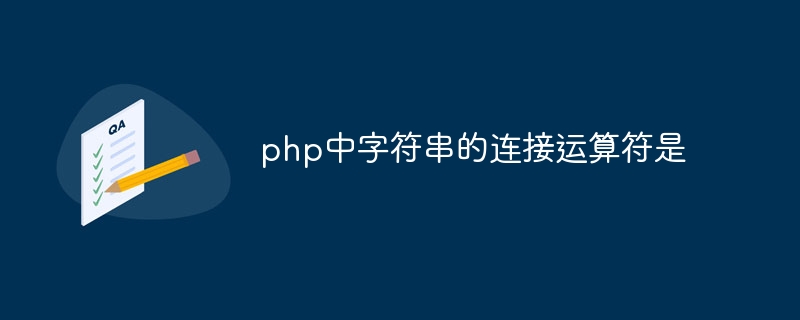Home >Backend Development >PHP Tutorial >The concatenation operator for strings in php is
The concatenation operator for strings in php is
- 下次还敢Original
- 2024-04-26 07:39:14800browse
The operator for concatenating strings in PHP is dot (.), which concatenates two string values together to form a new string, applicable to any string value, and the connection result is a new character String has higher priority than the assignment operator. It can be used to connect multiple strings continuously, and can also connect strings with other data types (non-string values will be converted to strings).

String concatenation operator in PHP
The operator used to concatenate strings in PHP is dot ( .). It concatenates two string values together to form a new string.
The syntax of this operator is as follows:
<code>$new_string = $string1 . $string2;</code>
Example:
<code class="php">$str1 = "你好"; $str2 = "世界"; $new_str = $str1 . $str2; // 输出:你好世界 echo $new_str;</code>
A few points to note:
- The dot operator works with any string value.
- The result of the concatenation will be a new string, rather than modifying the original string.
- The dot operator has higher precedence than the assignment operator (
=), which means$new_str = $str1 $str2;will result in a syntax error. - The dot operator can be used continuously to connect multiple strings. For example,
$str3 = $str1 . $str2 . "!"will create a new string containing three concatenated strings. - The dot operator can also be used to concatenate strings with other data types, such as numbers or Boolean values. In this case, non-string values will be converted to strings.
The above is the detailed content of The concatenation operator for strings in php is. For more information, please follow other related articles on the PHP Chinese website!

